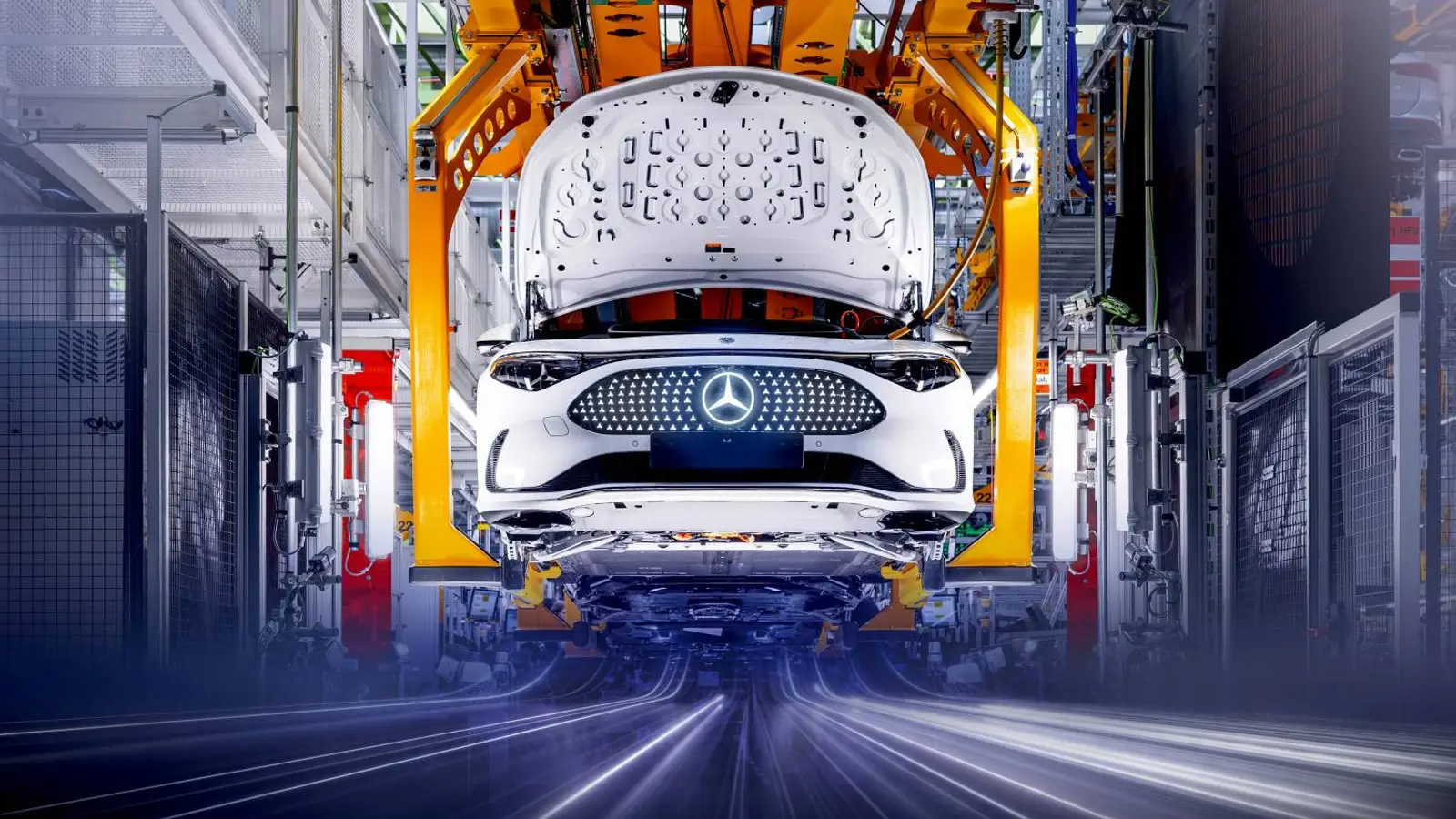Mercedes-Benz Launches CLA Production in Rastatt with AI, MB.OS, and Green Power

Mercedes-Benz begins CLA production in Rastatt, integrating AI, MB.OS, and green tech. A major step in digital, flexible, and sustainable automotive manufacturing.
Mercedes-Benz is entering a new era of production with the official start of series manufacturing for the next-generation CLA at its Rastatt plant. The site, located in Baden-Württemberg, now embodies the company's "Digital First" philosophy, integrating artificial intelligence, digital twin technology, and the proprietary Mercedes-Benz Operating System (MB.OS) into its MO360 production ecosystem. This move not only sets a new benchmark for modern automotive manufacturing, but also signals a deeper transformation within the company's global operations.
After a record-speed conversion of Hall 4.0, electric, hybrid, and combustion engine models can now be built on a single, flexible line. Rastatt becomes the first facility where MB.OS is used in series production, allowing software updates and system operations to be managed via the Mercedes-Benz Intelligent Cloud. Combined with digital simulations used to optimize assembly hall design, the result is significant savings in time and resources.
At the core of the new CLA is the modular MMA platform, engineered primarily for electric drive systems. The car offers a WLTP range of up to 750 kilometers, enabled by either a 58.4 kWh or 85.5 kWh battery. Thanks to its 800-volt architecture, charging from 10% to 80% takes just 22 minutes. Rear-wheel and all-wheel drive variants deliver up to 268 horsepower, ensuring that performance accompanies efficiency.
Production of the electric drive units takes place in Stuttgart-Untertürkheim, a site with more than 120 years of history. The batteries are supplied by the Mercedes-Benz subsidiary Accumotive in Kamenz, which has produced over two million battery units since 2012. Structural and bodyshell components come from nearby Kuppenheim, which also hosts Europe's first mechanical-hydrometallurgical battery recycling facility. This creates a closed material loop between the two locations.
Sustainability plays a central role. The Rastatt plant operates on 100% green electricity, supported by rooftop solar installations and external suppliers. Measures such as energy-saving robots, heat recovery systems, and smart lighting control have reduced energy consumption by more than 15 GWh per year. Additionally, Mercedes-Benz is pioneering large-scale stationary energy storage through an innovative partnership with CMBlu Energy AG. The planned 11 MWh organic solid-flow battery system is expected to improve energy management on site.
Logistics also reflect the shift toward climate neutrality. Finished vehicles are transported to Zeebrugge using electric trucks operated by Galliker. Furthermore, the new International Consolidation Center (ICC) in nearby Bischweier began operation in May 2025, streamlining deliveries to Rastatt and Kuppenheim.
Local pride in the transformation is palpable. With approximately 6,000 employees, Rastatt remains the region’s largest employer. The CLA production reinforces the plant’s legacy and its strategic role in the company’s future. As Mercedes-Benz continues expanding CLA manufacturing to Kecskemét and Beijing for international markets, the Rastatt site stands as a blueprint for next-generation automotive production — efficient, sustainable, and digital at its core.
Mark Havelin
2025, Jun 05 21:34


